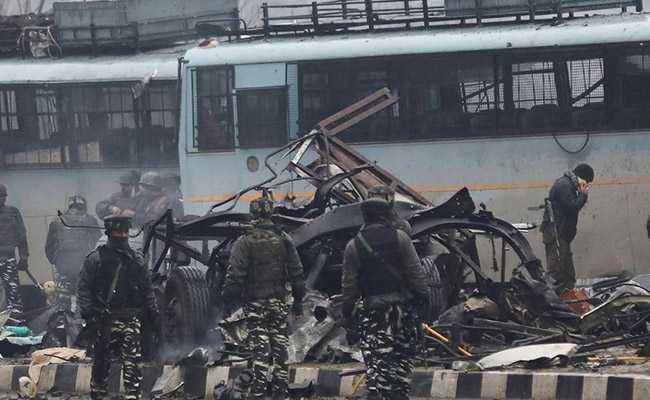
Suicide bombing is a method of terrorism deployed largely in conflict areas such as Afghanistan, Iraq and Palestine, but it now seems to be making in-roads into Kashmir.
The death of nearly 40 CRPF jawans in the Pulwama suicide bombing today has come as a harsh reminder of the 2001 terror attack on the Jammu and Kashmir Assembly, which was just two months before the parliament attack in December. The common thread between the two acts of terror is the Jaish-e-Mohammed, which has also claimed responsibility for the Pulwama episode.
On October 1, 2001, a JeM terrorist rammed a vehicle laden with explosives into the main gate of the J&K Assembly in Srinagar. The strike was coordinated as it allowed two other JeM terrorists to enter the assembly compound and fire indiscriminately at security forces.

The Home Ministry termed the Pulwama terror attack as a "possible suicide attack".
The blast itself had killed at least nine people and part of the Assembly building caught fire, according to a CNN report. More lives were lost in the subsequent exchange of fire, with the death toll pegged at a little over 30. A Guardian report notes that the terrorists had entered the Assembly building, firing guns and lobbing hand grenades at security forces. The gunbattle had raged on for several hours before the two terrorists were killed.
The death toll could have been higher if the attack had not been launched sometime after the assembly concluded business for the day. However, the House Speaker was among the few important persons still present inside the building.

The injured have been moved to the army base hospital in Srinagar, 20 km from the attack site.
Among the dead, according to CNN, were five police personnel, five employees of the assembly and a schoolgirl.
India saw fidayeen-style attacks in the years that were to come later but suicide bombing remained restricted to countries it shares its borders with. But today's attack in Pulawama, where an SUV was loaded with 350kg of eplosives, was eerily similar to the one in 2001.
Track Latest News Live on NDTV.com and get news updates from India and around the world

